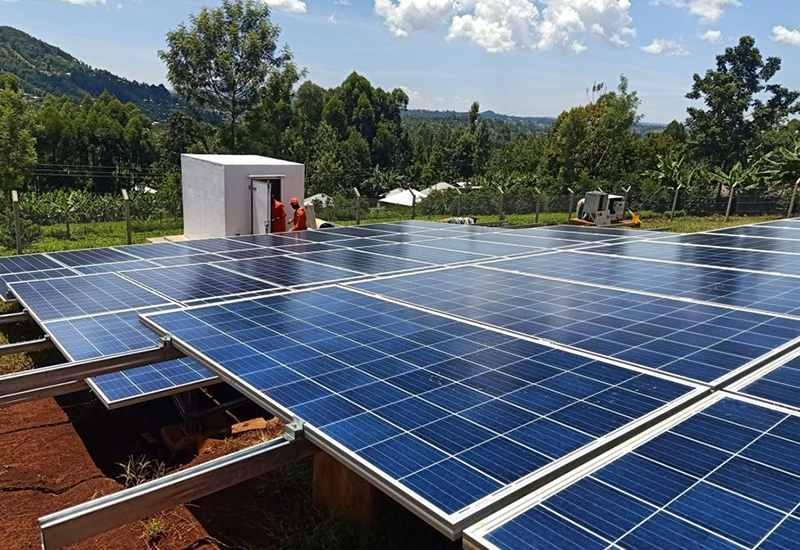Minister Adebayo Adelabu’s address to the National Assembly regarding the Ministry of Power’s 2025 budget underscored the urgent need to fortify Nigeria’s power infrastructure against the escalating threat of vandalism. He painted a stark picture of the vulnerability of the nation’s power grid, emphasizing that targeted attacks, often employing sophisticated methods like dynamite, are not mere acts of theft but calculated assaults with far-reaching consequences. The interconnected nature of the power transmission system means that damage to even a single component can trigger cascading failures across the grid, leading to widespread disruptions in electricity supply. Adelabu stressed that protecting these vital assets is a shared responsibility requiring the concerted efforts of all security agencies, from the local police to the national military, and the crucial backing of the National Security Adviser. He cited the attack on the Shiroro-Mando-Kaduna transmission line as a prime example of the severity of the threat, likening the tactics used to wartime strategies and highlighting the unforeseen financial burden of repairs not initially factored into the ministry’s budget.
The minister’s appeal for enhanced security measures reflects the growing recognition that vandalism poses a significant impediment to Nigeria’s power sector development. Beyond the immediate disruption of electricity supply, these attacks undermine investor confidence, hinder economic growth, and exacerbate the challenges faced by a sector already grappling with issues of inadequate generation and distribution capacity. Adelabu’s emphasis on the interconnectedness of the power grid highlights the strategic nature of these attacks, as they can cripple large swathes of the country with relatively targeted strikes. This vulnerability necessitates a multi-pronged security approach, encompassing not only reactive measures like increased patrols and surveillance but also proactive strategies such as intelligence gathering and community engagement to preempt attacks and identify perpetrators. The minister’s call for collaboration among various security agencies emphasizes the need for a coordinated and integrated response to this complex challenge.
In addition to the immediate security concerns, Adelabu’s address also outlined the ministry’s broader strategic objectives for the power sector in 2025. He reiterated the government’s commitment to the Presidential Power Initiative, a crucial program aimed at stabilizing the national grid and ensuring rapid restoration of power following any system failures. This initiative signifies a long-term vision for a more robust and resilient power grid, capable of withstanding both technical faults and malicious attacks. By prioritizing grid stability and rapid restoration, the government aims to minimize the impact of disruptions on businesses, essential services, and the daily lives of Nigerian citizens. The minister’s assurance of the government’s readiness to address the challenges plaguing the electricity sector underscores the importance of this initiative as a cornerstone of their power sector reform agenda.
Adelabu further elaborated on a strategic shift in the ministry’s procurement processes, emphasizing a move towards greater reliance on local contractors for the supply of essential materials like cables and poles. This policy shift is driven by multiple objectives, including the conservation of foreign exchange reserves, the streamlining of procurement cycles, and the reduction of dependence on imports. By fostering local manufacturing and supply chains, the ministry aims to stimulate domestic industry, create jobs, and enhance the overall efficiency of the power sector. This localization strategy also aligns with broader national objectives of promoting self-reliance and reducing vulnerability to global supply chain disruptions. The minister’s emphasis on this shift underscores the government’s commitment to a more sustainable and locally driven approach to power sector development.
The minister’s address serves as a stark reminder of the multifaceted challenges confronting Nigeria’s power sector. While the immediate focus is on securing critical infrastructure against vandalism, the long-term vision encompasses broader goals of grid stability, improved service delivery, and a more robust and self-reliant power industry. The emphasis on collaboration among security agencies, coupled with the strategic shift towards local procurement, highlights the government’s commitment to a comprehensive approach to power sector reform. The success of these initiatives will be crucial not only for ensuring reliable electricity supply but also for driving economic growth and improving the quality of life for all Nigerians.
In conclusion, Minister Adelabu’s presentation to the National Assembly painted a clear picture of the challenges and opportunities facing Nigeria’s power sector. His call for intensified security measures reflects the urgent need to protect critical infrastructure from vandalism, while his emphasis on the Presidential Power Initiative and local procurement underscores the government’s commitment to long-term stability and self-reliance. The success of these endeavors will be critical for unlocking the full potential of the power sector and driving sustainable development across the nation. The ministry’s 2025 budget, therefore, represents not just a financial allocation but a strategic roadmap for navigating the complex landscape of the Nigerian power sector and delivering on the promise of reliable and affordable electricity for all.














